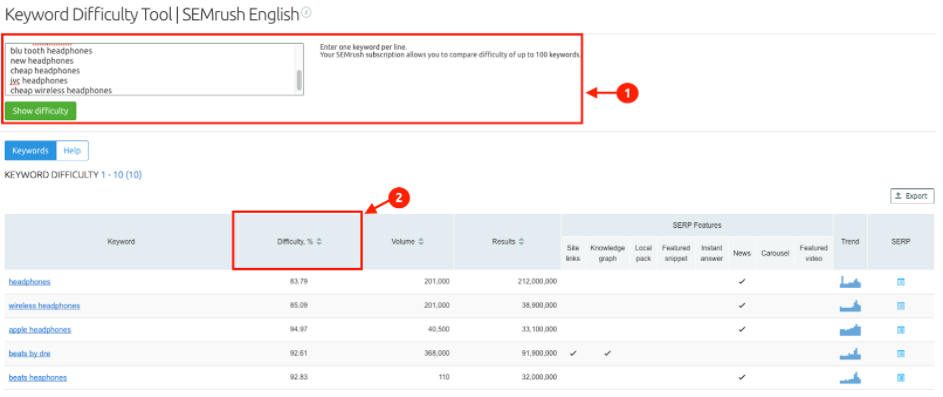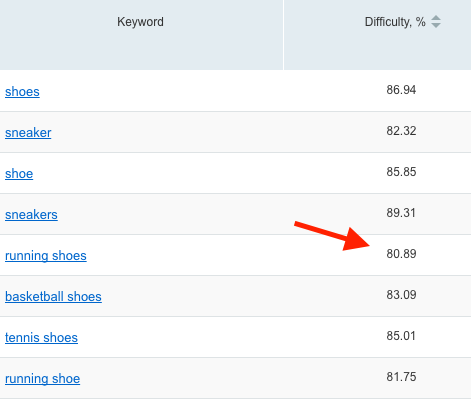SEMrush created its own proprietary formula to calculate Keyword Difficulty, which is an estimation of how hard it would be to rank well organically for a keyword. The score is a percentage from 0 to 100, so the higher the percentage, the more difficult SEMrush predicts it would be to rank for. With keyword difficulty, SEMrush takes into consideration the authority of the domains that are showing up on the results page.
The more authoritative the websites are that rank for a keyword, the harder it will be for new websites to rank for that keyword. There isn’t a way to truly gauge organic difficulty, because Google’s algorithm is always changing and updating what it takes to rank well in its results. But by analyzing the current ranking pages and their authority, you can get a strong sense of how difficult it would be to get a page to rank well in the results.
When you are estimating a particular PPC keywords competitiveness, cost-per-click is quite a clear indicator. The higher a keyword’s CPC, the more competitors will fight to have their ads shown for it.
As for SEO keywords, their search volumes may give you an idea of their competition level. Ranking for high-volume keywords is every SEO practitioner’s dream.
The SEMrush Keyword Difficulty tool helps you:
- Find low competition keywords and for your target list
- Save time by prioritizing keywords with low difficulty first
Find Low Competition Keywords
Go to SEMrush → Tools → Keyword Difficulty, enter up to 100 keywords you’d like to analyze and click the Show Difficulty button (1).
The keyword difficulty index (from 1-100%) shows you how difficult it would be to out rank your competitors (2) in the Google or Bing top 100 with the specified search terms and phrases. The higher the percentage, the more effort it will take to outrank your competition for each targeted keyword.
To calculate the difficulty of a keyword, we analyze the top domains that are ranking in the first twenty organic search results for the given keyword. Based on each website’s SEMrush Rank, we calculate its domain strength and define its keyword difficulty.
By sorting results according to difficulty in ascending or descending order, you’ll be able to discover the most and least competitive keywords.
Prioritize Low Difficulty Keywords
By estimating different keywords' levels of difficulty, you can determine which ones will require the most time and effort to get high rankings for them. You will also define which search phrases are easiest to rank for. Just be patient, keyword discovery is hard work that can result in higher rankings and traffic.
Understanding the level of competition for keywords in purely organic results will help you adjust your SEO strategy and focus on the right keywords. Lower difficulty keywords, while not as high volume, are much easier to rank for and over time can really add up to boost your overall keyword profile.
#semrush




0 comments:
Post a Comment